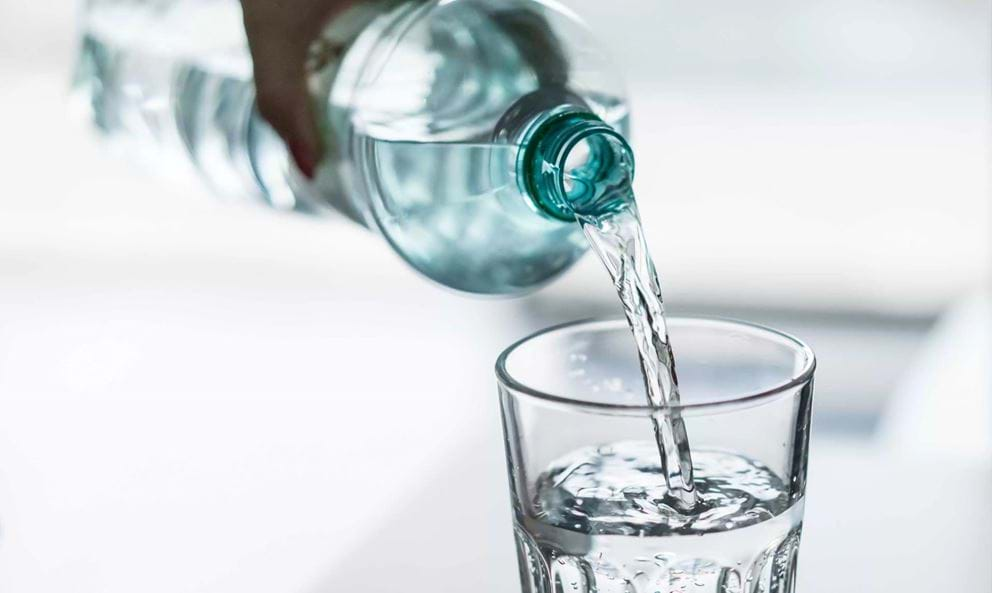Water Weight: What Is It and Why Does It Matter

Water Weight: What Is It and Why Does It Matter
Ever had that surreal experience of hopping on a new diet, and losing 10 or more pounds in the first week? You might have caught yourself staring at the scale and wondering how it got damaged, or mouthing the words “it’s just not possible” into your bathroom mirror through tears of disbelieving joy.
On the other hand, maybe you’ve had the altogether less positive experience of having a pizza night with your friends, weighing yourself the next morning, and find out that you’ve apparently gained 3lbs from that one meal alone.
What’s really happened in both cases is that your body’s water weight has fluctuated.
So… what is water weight?
The hint’s in the name. It’s no secret that we’re all full of water. Studies dating back to the 40’s have found that nearly as much as 70% of our bodies may be comprised of precious H2O.[1]
But when we talk about “water weight”, specifically in the context of dieting and fitness, what we’re mostly talking about is water stored in the cells of the body, often joined to glycogen. We’re not talking about a pool of water that floats between your skin and your muscles like you might have heard from some online commentators.
How does glycogen affect water weight?
Glycogen is - more or less - a stored form of glucose which your body holds in your liver and muscle cells for when it needs a quick fuel source. Each glycogen molecule is made up of a protein core, surrounded by glucose subunits.
And here’s the interesting part; each gram of glycogen stored in your body is bound to 3 or 4 grams of water.
Glycogen is the main culprit behind sudden bouts of weight loss and weight gain, especially during a diet. The reason you can lose 10 or more pounds of weight in the first week of a diet – especially a low carb one – is because you’re burning through your body’s glycogen stores and not replenishing them.
The reason why you can seem to gain a bunch of weight from one pasta and pizza binge is largely because you’ve “carbed up” and filled your body’s glycogen reserves.
Is water weight good or bad?
Whether water weight is cause for concern, largely depends on your goals. Water weight is generally seen as a bad thing by people who want to look as lean and defined as possible, as it causes them to appear more “full”, maybe even “puffy”.
For high-performance athletes, a degree of water weight is usually a good sign, since it suggests that their glycogen stores are full and ready to help power them through a strenuous session.
Of course, severe bloating – especially of the face and joints -- is a red flag, and if you notice your body swelling up dramatically, you should always consider getting an opinion from your doctor.
What triggers water retention
There are various things which can trigger your body to put on water weight. A few of these include:
Increased salt intake
Salt intake is known to be connected to water retention. Interestingly, a 2009 study found that the real trigger comes from eating more salt than you normally would – not necessarily the total quantity of salt you consume on average.[2] This is another reason why a salt-laced junk-food binge can pack on the water weight.
Your time of the month
It won’t be a surprise to the women reading this that menstruation causes water retention. While women may notice water weight being put on at different points in their cycles, a 2015 study found that 92% of women experience water retention in the week before their period starts.[3]
Stress (heightened cortisol)
Cortisol is the body’s primary “stress hormone”, and increased water retention is one of its side effects.[4] While cortisol isn’t a bad thing in itself, chronically elevated cortisol levels are a problem. Mental worry, sleep deprivation, extreme dieting and exercise can all raise cortisol to troublesome levels.
Starvation
Water retention appears to be a symptom of starvation. The famous “Minnesota Starvation Experiment” found that swollen limbs, joints, and faces, specifically, went with severe calorie deprivation. Slightly increasing the calorie intake caused the water weight to disappear.[5]
What to do about it
What do you do if you find yourself holding a lot of water weight? Here are a few humble suggestions:
Deal with it
Some degree of water weight is just a natural part of day-to-day life. While you could take steps to avoid it as much as possible – like never having a plate of spaghetti – you’re unlikely to escape fluctuations altogether.
If you live a normal, healthy life, with a varied diet, it’s a good idea to make your peace with the idea that on some days you’ll just be holding more water than on others.
Switch to a low carb diet
As glycogen stores are topped up by eating carbs, you can avert this process by sticking to a lower carb diet. You don’t necessarily need to go full-keto. Many people will find that there’s a sweet-spot between performance, comfort, and appearance, where they’re eating enough carbs to feel “fuelled up” but not so many that they experience heavy bloating.
Try a calorie refeed
Aggressive dieting, with large caloric deficits, mimics the effects of starvation on the body and is likely to result in some water retention.
To get rid of this, have an occasional refeed day. The point of a refeed day is to eat many more calories than you normally would, in order to give your body a break.
Magnesium for pre-menstrual women
There’s some evidence that supplementing with magnesium can help pre-menstrual women keep some of the water weight at bay, but the results don’t come quickly. It seems to take around 2 months of regular supplementation for the trick to work.[6]
[1] http://www.jbc.org/content/158/3/625.full.pdf
[2] https://www.ncbi.nlm.nih.gov/pubmed/19173770
[3] https://www.ncbi.nlm.nih.gov/pmc/articles/PMC4362892/
[4] https://www.ncbi.nlm.nih.gov/pmc/articles/PMC3978663/
[5] http://jn.nutrition.org/content/135/6/1347.full
[6] https://www.ncbi.nlm.nih.gov/pubmed/9861593


